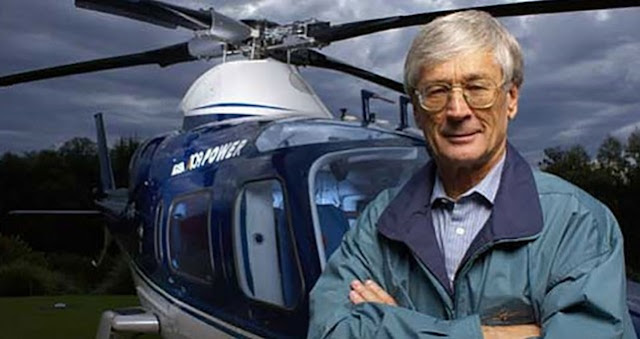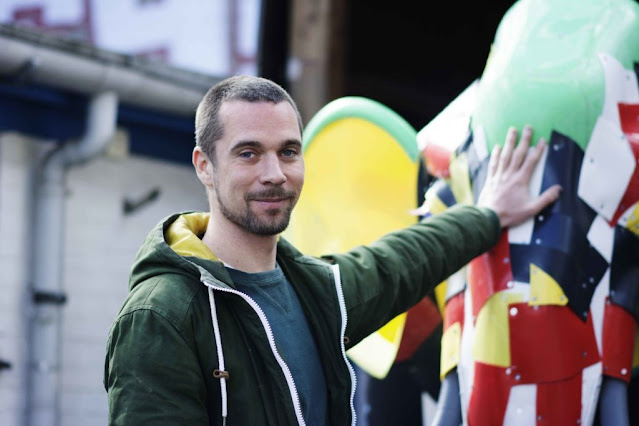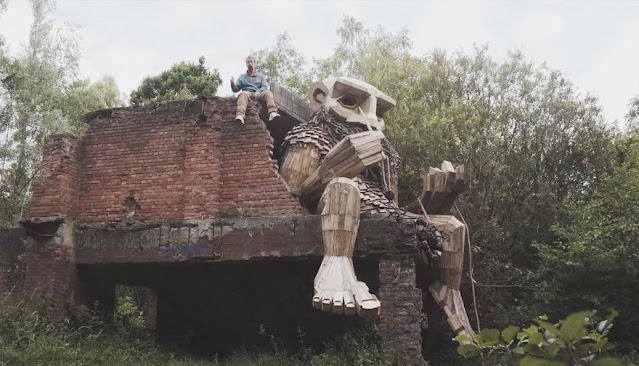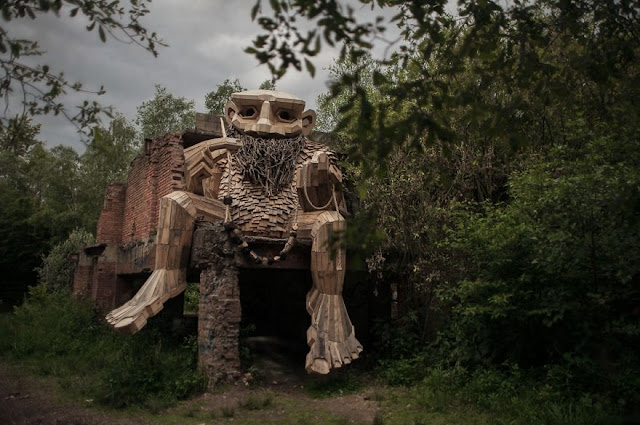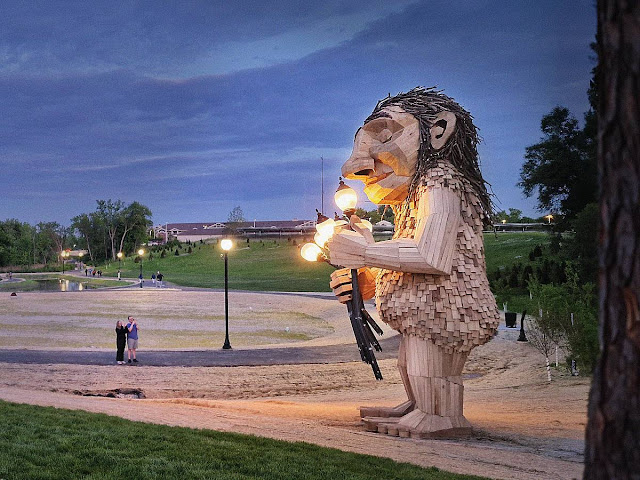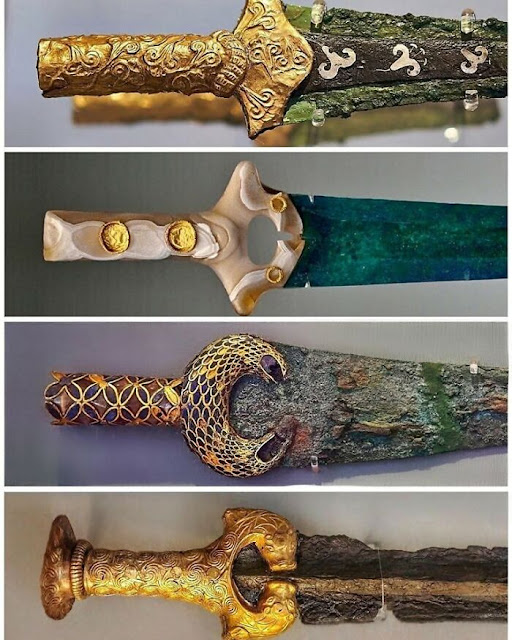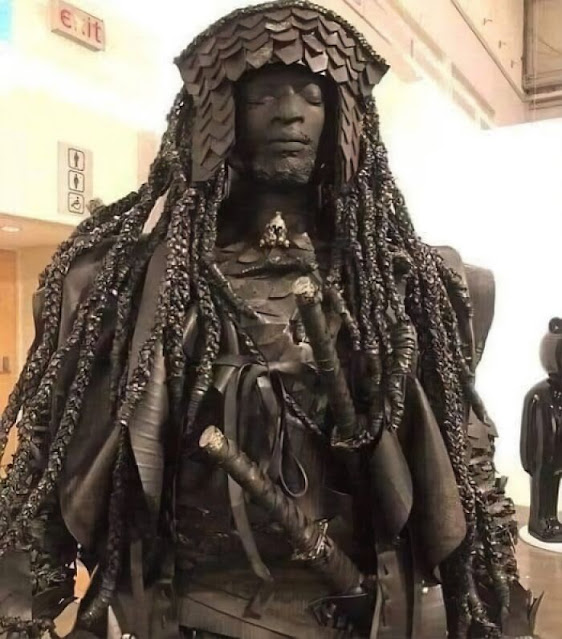----------ooOoo-----------
There is a Facebook page called Archaeology World which features interesting and fascinating items from the past. Recently Bored Panda featured a selection of those items at:
Here are some of those featured items with BP commentaries, headings and BP reader comments.
----------ooOoo-----------
The Double Statue Of Mephistopheles And Margarita
Perhaps one of the most incredible sculptures in the world. There is a well-known sculpture called "The Double Statue of Mephistopheles and Margarita". The fact is that on one side of the statue there is a male figure, and on the other - a female one. The sculpture is created from a single piece of the oldest sycamore tree.
Reader comments:
This is an amazing early work that has to be seen to be believed.
Well this is from the 19th Century, made by an unknown French artist. Marvelous piece of woodcarving art. But not really that old. And nothing that was "found by an archeologist" as claimed by the headline...
🎶 Mephistopheles is not your name - I know what you're up to just the same 🎶
Please allow me to introduce myself, I'm a man of wealth and taste..
"The oldest sycamore tree" ? Please explain. Or do you mean from a single block of wood?
They can't explain. They just tossed it in, to make it sound cooler
Where is it?
It's in the Salar Jung Museum, Hyderabad, India. 🙂
Not archaeology.
__________
Cat Paw Prints In The Medieval Floor Tiles Of The 12th Century Ce St Peter Church In Wormleighton, England
Paw prints have been found EVERYWHERE ancients used baked tile.
We found marten prints in the concrete just hours after it was poured. Why should it have been different throughout history?
We had some of our patio fixed last year. There are paw prints in the concrete. Just wish I knew which of our cats left them!
__________
Ancient Marvel, From 1516, The Visionary Mind Of Leonardo Da Vinci Manifested In The Form Of A Captivating Spiral Staircase
Is this in the chateau of Chambord?
Yes
It looks like a twisted piece of fabric. F*****g Leo genius.
It reminds of the grand sweep of the skirt of ballgowns from a bygone era
Da Vinci was the most incredible genius to walk this planet, secondary only to Jesus Christ.
Reminds me of a Nautilus seashell.
That is so beautiful. Look at the door with the steps leading onto the steps and imagine trying to do that at night, without electric light and an almost guaranteed low level of inebriation in 1500s. Those stairs have stories to tell of those that bounced on down to the basement from there.
WOW!
__________
The Appennine Colossus
Built over 420 years ago in Florence, Italy, the Appennine Colossus is half man and half mountain. It was created with a brick core encased by a carved stone exterior that rises 35 feet above the water below. There's even a secret room behind his head with a fireplace that blows smoke through his mighty nostrils.
imagine thousands of years later from now, there will be identical documentaries about Disenyland!
I think the archaeologists will have some interesting theories when they find Legoland
Not archaeology.
Yes it is. It can be studied by archeologists. It is something humans made. It's archeology.
That gives me the creeps.
__________
Bust Of Maria Duglioli Barberini
Bust of Maria Duglioli Barberini, sculpted by the renowned Italian artist Giuliano Finelli in 1626. Finelli, celebrated for his skillful marble carvings, created a lifelike and dynamic representation of Maria Duglioli Barberini, a member of the influential Barberini family.
Exquisite detail. Love to see someone do that today.
Back then artists were paid so that they could spend years on each work. Don't know about this one but i am assuming haha. Some sculptors today can achieve this level of detail but may not be allowed the time.
The lace work is stunning.
How do you coordinate your hands and eyes to that level? I can't put ice in a cup without dropping at least one cube ffs.
You started an apprenticeship as a small child and worked your way up from dogsbody. For decades of your life you did grunt work chipping out rough forms for your master and gradually working your way up. And if you were very talented, very lucky, and your master didn't go out of business or get disgraced you might get this good.
She died during childbirth at a young age. Her uncle later became Pope and he had the main altar in St Peter's Basilica, Vatican made. On each of the corners of the altar are 2 sculptures, eight in all. And now that I have told you this try looking for the story on Google. The most important altar for the Catholic Church, the altar of the Popes...and...and... !!!!
Unfortunately my first thought was "how do you keep this clean?" 😂 dusting it would be a nightmare
The detail in her hair and on her clothing is amazing.
__________
Mycenaean Daggers/Swords, Greece 16th - 14th Century Bc, National Archaeological Museum, Athens, Greece
Stunning workmanship
So that means they are From 1300 to 1500 years ago. Wow!
__________
The Gate Of All Nations In Persepolis
A massive guardian statue stands at the Gate of All Nations in Persepolis, the ceremonial heart of the Achaemenid Empire, located in present-day Iran. Commissioned by King Xerxes I in the 5th century BCE, this gate once received envoys from across the empire during New Year festivities. Carved from limestone, the figure features a bull’s body, eagle’s wings, and a human head—symbolizing power, guardianship, and royal dignity. Drawing inspiration from the Assyrian lamassu yet showcasing Persian elements, it exemplifies the empire’s majesty. Although weathered by time, the sculpture still powerfully conveys the artistry and authority of ancient Persia
ISIS or Taliban are the real vandals
Vandals were a group of people whose religion and history were ISISed by Rome and Christianity.
Sorry Dee, it is locals ISSIS and Taliban that destroy the historical wonders
Please tell me the US hasn’t bombed it. 😞
More likely ISIS or other terrorist groups bombing this stuff.
And of course British museum has a whole bunch of the reliefs from there...
There are a few YouTube and TikTok accounts that feature AI reconstruction of some of these sites and artifacts. Some are really not well done but some are and are fun to check out.
What a pity that such symbolism of tolerance and liberalism is under the control of one of the most backward regimes - hopefully, not for much longer.
It's miraculous it's still standing.
__________
A Statue Of Yasuke, An Enslaved African, Who Arrived In Japan In 1579 And Became The First Black Samurai
Yasuke a tall African man, arrived in Japan in 1579 and made history as the first foreign-born man to become a samurai warrior. Yasuke was originally a slave from Mozambique and was brought to Japan by Portuguese traders. The powerful Japanese warlord Oda Nobunaga was fascinated by Yasuke's tall stature and dark skin, and upon seeing him, ordered his servants to try and rub the "black ink" off his skin. Despite this strange encounter, Nobunaga took Yasuke into his service, granting him a sum of money, a house, and a katana. From then on, Yasuke loyally served Nobunaga as an honored samurai, fighting alongside him in fierce battles. He went from being a piece of Portuguese property to a member of the Japanese elite.
Not a Samurai, but rather their version of a Squire, some modern western writers not understanding the Japanese ranking system misinterpreted him as a Samurai, but he the level below that, the equivalent of what a Squire was in Medieval Europe. His story is interesting, and a fascinating piece of history, but keep details correct
There are some depictions which may show Yasuke, but that is a statue by Nicola Roos made in 2017
It appears to be a death mask.
Whoa - impressive!
__________
The Nushabad Underground City Near Kashan, Iran
The Nushabad Underground City near Kashan, Iran, stands as a 1,500-year-old marvel from the Sassanian era. Carved an impressive 4 to 18 meters deep across three levels, this labyrinth stretches over 4 square kilometers. Its intricate network of tunnels, rooms, and air ducts provided refuge for locals seeking shelter from invaders like the Mongols and Arabs. With hidden entrances tucked beneath homes and forts, plus cunning traps like narrow curving passages, it safely housed thousands for days, complete with wells and storage.
This incredible city was utilized into the Qajar era (1789-1925) but was gradually abandoned as external threats diminished. Its secrets lay buried under desert sands, forgotten by time, until 2005. That year, a Nushabad resident, while digging a drainage ditch, stumbled into a tunnel and unveiled this lost world.
The idea of this is awesome but it sure looks claustrophobic.
I was lucky to visit it a couple of years ago and somehow it's honestly not very claustrophobic, the passages are quite wide and tall. But to be fair, there are electric lights down there nowadays, things might have felt different with only oil lamps in the old days. Plus, it used to hide a lot of people, whole families.
How does something this huge, this amazing, go 'forgotten' for decades and decades until someone digging a ditch accidentally falls into it and OMG there is an entire underground city down here!! WOW! It looks amazing. Look at how sharp those steps look, so perfectly made! You can't argue with the craftsmanship.
__________
30 Million Year Old Amber Encasing A Praying Mantis
Keep it away from Dr. Hammond!
Proof that prayer doesn't always work
And from here we create Jurassic Park
Gorgeous. I have a small piece with a crane fly preserved. Approx 140 million years old and the species hasn't changed.
WHERE IS YOUR GOD NOW, MANTIS???!!
----------ooOoo-----------
More to come.








